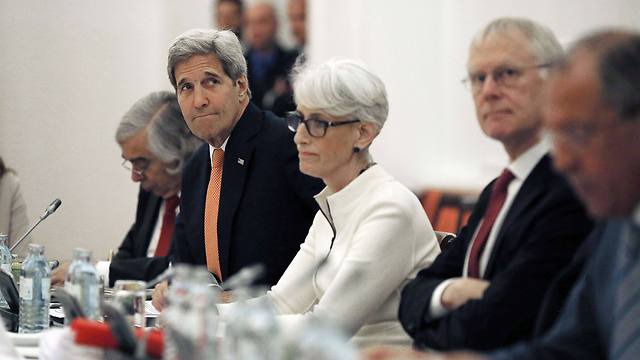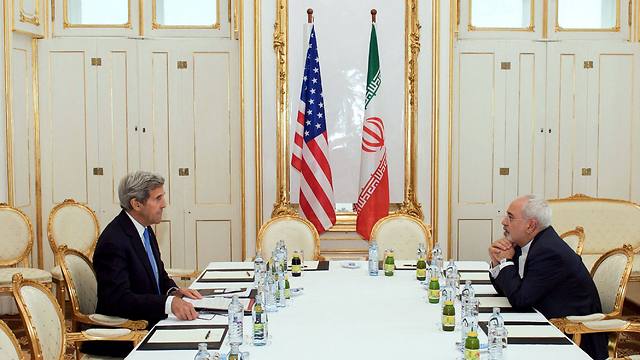Netanyahu views Congress as ‘last line of defense against a bad deal,’ but US lawmakers have yet to be briefed on details of agreement; ‘There’s a lot of questions members of Congress have before they decide whether they can support this agreement,’ says Senator Ben Cardin.
Israel appears to have reluctantly accepted the inevitability of an Iranian nuclear agreement, and is now focusing its efforts on stopping the deal’s approval in Congress.
“The assumption is that there’ll be an agreement,” an Israeli official said, and Prime Minister Benjamin Netanyahu views the US Congress as a “last line of defense against a bad deal.”
Israel’s diplomats were instructed to put an emphasis on the loopholes in the agreement, including concessions made on the number of centrifuges Iran is allowed to keep, research and development, the mechanism of supervision and most importantly, concessions made on Tehran’s military program.
“We’ll put an emphasis on Iran’s conduct – the burning of flags, not meeting their commitments,” the official said.

Israel, he said, will warn Congress that “within 10 years, Iran will have a short nuclear breakout time, and until then it’ll continue funding terrorism using the billions it’ll get.”
But members of Congress, who have 60 days to review the deal before voting on it, have yet to be given any details on the agreement.
Jewish Senator Ben Cardin, the senior Democrat on the Senate Foreign Relations Committee who criticized the emerging nuclear deal, said he must read the agreement before he could decide how to vote.
“The devil is in the details,” Cardin told CNN.
“We still don’t know exactly about the inspection regimes. That’s going to be a very important part for many members of Congress. We’ve heard about arms embargo issues. We need to know how that has been resolved. The sanctions relief is also a matter of incredible importance, what research Iran will be permitted to do. So there’s a lot of questions I think members of Congress want to know the details before they decide whether they can support or not this agreement,” Cardin said.

Senator Cardin is part of a group of pro-Israel Democrats who could determine whether or not Congress has the two-thirds majority it needs against the agreement to bypass President Obama’s veto.
“We need, first, to be able to get through the documents. We need to have our briefings, both open and closed briefings. And then we need to have some discussions among ourselves. We want to have as much open process as possible. We want the American people to understand this,” he said.
“Our bottom line is Iran needs to be prevented from becoming a nuclear weapons state. We don’t trust them, so we have to be able to inspect and see if they’re cheating and we have to have time to take action to prevent them from becoming a nuclear weapon state if they do not comply with the agreement… A bad deal is worse than no deal at all. That’s the standards we’ll be using,” Cardin continued.
Cardin said some members of Congress have already decided how to vote, but most of them want to see the agreement before making a decision.
He promised to work alongside his Republican colleague, Senator Bob Corker, who chairs the Senate’s Foreign Relations Committee.
As reported by Ynetnews
